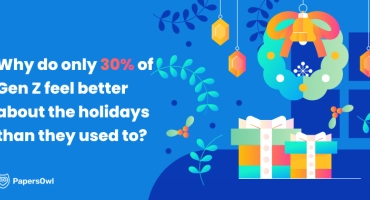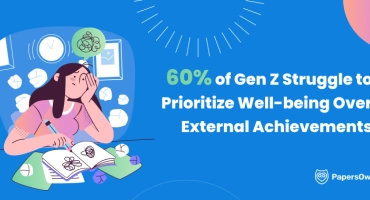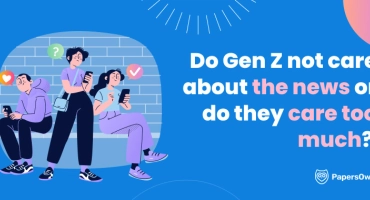95% of Gen Z find workplace cheating acceptable
Table of contents
- 1 Career Catfishing: A Growing Trend
- 1.1 Revenge Quitting and Quiet Cracking: Gen Z’s Next Workplace Rebellion
- 1.2 Workplace Hacks or Red Flags? Surprising Stats on Career Catfishing
- 1.3 Emotional and Contextual Insights
- 1.4 Generational Perspectives
- 1.5 Impact of Social Media and Peer Pressure
- 1.6 The Rise of Coffee Badging
- 1.7 Quiet Vacationing: Working 1 out of 10 When Nobody Knows
- 1.8 What Motivates Gen Z to Work Hard?
- 1.9 Summing Up on Career Catfishing as a Cultural Phenomenon
Career Catfishing: A Growing Trend
Career catfishing is the act of accepting a job offer but only showing up for one day ─ or not showing up at all. This trend aligns with other Gen Z workplace trends and behaviors pursued recently, redefining the hiring and human resources market.
We surveyed 2,000 Americans aged 18-34 from across the United States to better understand the motivations driving individuals to abandon newly secured positions, how often Gen Z and young Millennials quiet vacation, and which other “cheating” methods are deemed acceptable by younger generations.
Revenge Quitting and Quiet Cracking: Gen Z’s Next Workplace Rebellion
The same generation that turned “quiet quitting” into a cultural buzzword is now reshaping workplace exits altogether. According to a 2025 PapersOwl survey, 7% of Gen Z employees have revenge quit this year alone — not because they dislike work, but because they’re tired of being unheard. It’s not a retreat; it’s retaliation through resignation.


Revenge quitting often happens when frustration piles up. Many young workers point to low pay or no raises (52%), a lack of recognition (40%), unclear career growth (32%), poor work–life balance (34%), and micromanagement (27%) as reasons that push them to walk away. When effort goes unnoticed and promises go unkept, quitting becomes a way to reclaim dignity and make a statement about fairness.
But not everyone leaves. A quieter, more insidious form of burnout is spreading among those who stay — what experts call quiet cracking.
What Is Quiet Cracking?
Quiet cracking is like burnout in disguise. It develops slowly when employees feel stuck or chronically dissatisfied at work. Instead of open frustration, it shows up as silent detachment — a steady loss of motivation, creativity, and confidence. Workers keep showing up, but mentally they’ve already checked out. Over time, that internal strain chips away at focus and performance, creating an invisible crisis that many employers fail to notice until it’s too late.
Both revenge quitting and quiet cracking signal the same problem: Gen Z doesn’t want to endure toxic work cultures — they want change. This generation expects fairness, flexibility, and purpose. Companies that ignore these signals risk losing not just employees, but credibility with the generation that will soon make up the majority of the global workforce.
Workplace Hacks or Red Flags? Surprising Stats on Career Catfishing
- 29% of Gen Z and young Millennials have been catfishing recently.
- Coffee badgers are doing so because they:
- Desire flexibility in their workday (63%);
- Prefer to work in another location (43%);
- Want to avoid confrontations or interactions with colleagues (42%);
- Every second respondent had vacationed quietly at least once during the last year.
- 95% of respondents believe workplace cheating ─ such as clocking out earlier, napping, and using corporate software for personal matters ─ is acceptable, with many admitting to having done at least one of the 15 shortcuts we asked about.
- Career catfishing is becoming a widely recognizable term, with only 37% of respondents unaware of its meaning.
Emotional and Contextual Insights
Statistics it is, but what are the reasons behind such an anxious trend?
First of all, we can explore anxiety and mental health implications. The modern workplace is a quest if you’re searching for a work-life balance. No wonder it creates daily pressure you’d like to omit. Plus, societal expectations add to the share. As a result, this all contributes to the anxiety that fuels behaviors like career catfishing or quiet vacationing.

- 29% admitted to doing it during the last year, and an additional 20% have friends who abandoned their newly secured job just after one day.
- 21% of “catfishers” stated they did so on a dare.
- Over 90% of respondents admitted having taken multiple “shortcuts.”
These numbers highlight a general shift in work-life balance trends for Gen Z and consequent workplace expectations, as the stigma around job “cheating” is decreasing. It is good to mention that many companies notice such tendencies and try to promote mental health considerations to reshape workplace motivation and culture.

Generational Perspectives
It’s no secret that every generation differs in work approaches, from Boomers experiencing anxiety from a work-at-home shift to Zoomers not seeing a big deal in working from their couch at 10 p.m. Indeed, younger generations view flexibility, autonomy, and mental well-being as non-negotiable constituents of a successful life.
A Gen Z respondent mentioned, ‘Why stay in a job that doesn’t respect me when I can freelance or find something better?’
Another survey participant answered, ‘As long as I deliver on time, does it matter if I work from Bali beach?’
What we observe is the decline of workplace loyalty. Technological advancements like remote work, freelancing platforms, and AI have made alternative career paths more accessible, reducing reliance on traditional employment. And that’s what younger generations would always vote for!
Impact of Social Media and Peer Pressure
Everyone would agree that social media significantly shapes attitudes toward work, fueling the discussed trends. Platforms like TikTok and Instagram often portray two contrasting narratives: the relentless “hustle culture” and the laid-back “soft life.”
- Hustle culture glamorizes overworking and constant productivity, showcasing entrepreneurs and employees striving for financial freedom and prestige.
- Soft life trend champions prioritizing mental health and leisure to avoid burnout.
Peer validation amplifies these trends, as likes and comments reinforce the idea that prioritizing personal happiness over traditional job loyalty is acceptable. This digital dialogue highlights a generational shift in how work and self-worth are intertwined.

Such impact leads to more methods in rule-bending trends. More than 10% of respondents admit they actively use:
- Clocking out earlier (34%).
- Calling in sick when not actually ill to take an unplanned day off (27%).
- Starting late without notice (18%).
- “Quiet quitting” by putting in minimal effort (16%).
- Using AI to complete tasks (14%).
- Napping during work hours while working remotely (11%).
- Logging more hours than actually worked (11%).
- Utilizing company tools or software for personal hobbies or freelance work (10%).

They might have discovered them on TikTok or made such a decision on their own; it’s not that critical. The point is that they use such methods as something normal and convenient.
The Rise of Coffee Badging
Another approach gaining attention is coffee badging ─ clocking in on-site just long enough to sip coffee in the kitchen with a colleague and then spending the day working remotely elsewhere. We see the desire for freedom and flexibility in such behavior, but older generations of managers might perceive it as disrespect and disobedience. This attitude can underscore the growing generational divide in workplace expectations, where Gen Z and Millennials prioritize autonomy and results over rigid schedules.

For 36% of respondents who have done it up to 10 times or more in the last year, the main reasons were:
- Desire for flexibility in the workday (66%);
- Preference for working in a different location (41%);
- Avoiding unnecessary interactions or distractions (32%);
- The office environment feels unproductive (22%);
- Commuting convenience (24%).
For many, coffee badging isn’t about slacking but finding an environment that maximizes productivity and comfort.

Quiet Vacationing: Working 1 out of 10 When Nobody Knows
Quiet vacationing refers to taking time off without notifying a manager while maintaining the appearance of working.
51% of respondents admitted to doing so up to three times during the last year, and 12% admitted to doing so even more frequently. Does this mean that half of Gen Z are just being lazy? We don’t think so. Nevertheless, the hard data speaks for itself, leaving no place for speculation.

We discovered these reasons behind quiet vacationing:
- Mental strain or burnout (46%);
- Inability to take PTO for family matters (36%);
- Limited or no PTO availability (31%);
- Difficulty getting PTO approved during holidays (28%);
- Remote working is prohibited (7%).
Interestingly, only one respondent stated they did it “just because they can.”

What Motivates Gen Z to Work Hard?
Employers and job seekers might be confused about Gen Z’s growing need for freedom. Thus, it raises questions like ‘How can young workers be engaged for a long period?’ or ‘How can open communication ensure employees will not cheat or vacation quietly?’

Here are several things that motivate Zoomers. Employers and job seekers, feel free to write down:
- Pay raises: Unsurprisingly, just over 50% of respondents chose this as the top motivator.
- Positive and less toxic work environments: Ranked second, with 31% of respondents.
- Family-related factors: Surprisingly, this came in third, with respondents citing the need to provide for loved ones.
- Recognition and challenges: Other motivators include the desire for efforts to be recognized and the satisfaction of overcoming challenges.
The list is not that extensive, but it can be hard to accomplish. If the company feels tempted to career catfish, honest communication with potential employers about their needs and expectations is the first step to handling the trend.
Summing Up on Career Catfishing as a Cultural Phenomenon
We can raise many ethical and philosophical questions regarding quiet vacationing. Or is it just not working for the time you’re paid for? Are these trends indicative of a workforce redefining loyalty and productivity? Or are they signs of disengagement from corporate responsibilities? The questions remain open.
In the long run, these behaviors will shape the future of hiring and work environments, including the potential normalization of hybrid models or flexible PTO policies. What employers can do is understand these behaviors by fostering open communication, prioritizing mental health, and offering flexibility to reduce workplace “cheating.”
Encouraging a positive culture that recognizes employees’ contributions and allows for growth and balance will always win under strict time-logging, daily reports, or screen-sharing.




